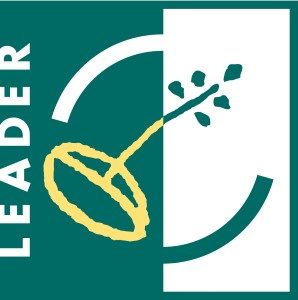
Community Led Local Development – CLLD/LEADER
Integrated local development strategies
Community-led local development (CLLD) based on the LEADER approach is a method of programming and implementing integrated local development strategies that involves partners at a local level such as the civil society and the local economic and social bodies in order to response to the economic, social, environmental and demographic challenges that rural areas face today. CLLD is an approach that allows local communities to take ownership of the objectives of the Europe 2020 Strategy for the implementation of a more effective economical and inclusive development in order to face the socio-economic problems of rural areas and to enhance the social cohesion in rural areas.
Greek rural areas have significant experience in the planning and implementation of integrated local development programmes through LEADER approach. In the current programming period the aim is on enhancing new innovative approaches based to the new development elements (due to economic crisis) and tools (such as young people returning to rural areas, social initiatives, short supply chain enhancement, the linkage of the rural sector with culture, tourism and the environment) creating synergies for the increase of competitiveness and sustainability of rural areas according to the national strategic plan for the rural development.
Focusing on rural areas and societies, LEADER/CLLD approach gives the “flexibility” and the possibility of planning and implementing local development strategies with integrated and multisector characters, taking into account the national development policies as well as the regional ones, through the funding of infrastructure, services, enterprises and employment, activities such as networking, cooperation and capacity building, by EAFRD and EMFF, ESF and ERDF in cases of multifunded approach.
In Greece, 51 Local Development Strategies in rural areas have been selected in two rounds of call of proposals.
The main characteristics of the projects co-funded in the framework of Local Development Strategies are:
- Maximum budget per project (public and private participation): 600.000€,
- Private projects: knowledge transfer, crafts and small industries, tourism projects, services (nurseries and nursing houses, small laboratories, sport facilities etc.), cooperation projects /clusters,
- Public interest projects: water supply projects, waste management projects, small scale road networks, building and area restoration, services (nurseries and nursing houses, sport facilities etc.) free for the local population, restoration of cultural monuments, cultural projects and events, protection and restoration of forests,
- Inter-territorial and transnational co-operation projects.
The responsible bodies for the implementation of the LDS are:
- The Implementing Authority of RDP which is responsible for the coordination and the monitoring of the LDSs implementation.
- The Regional Managing Authorities, as intermediate managing bodies, which are responsible for the monitoring of the LDSs delivery.
- The Local Action Groups (LAGs) and their Programme Managing Committee which are responsible for:
- The proposal call and evaluation procedure in local level
- The administrative procedures (receipt and control of payment requests of the beneficiaries, on-site inspection, confirmation of economic and physical object, payment of aid).
- The Payment Agency (PA)
Here you can find the Greek LAGs database.


